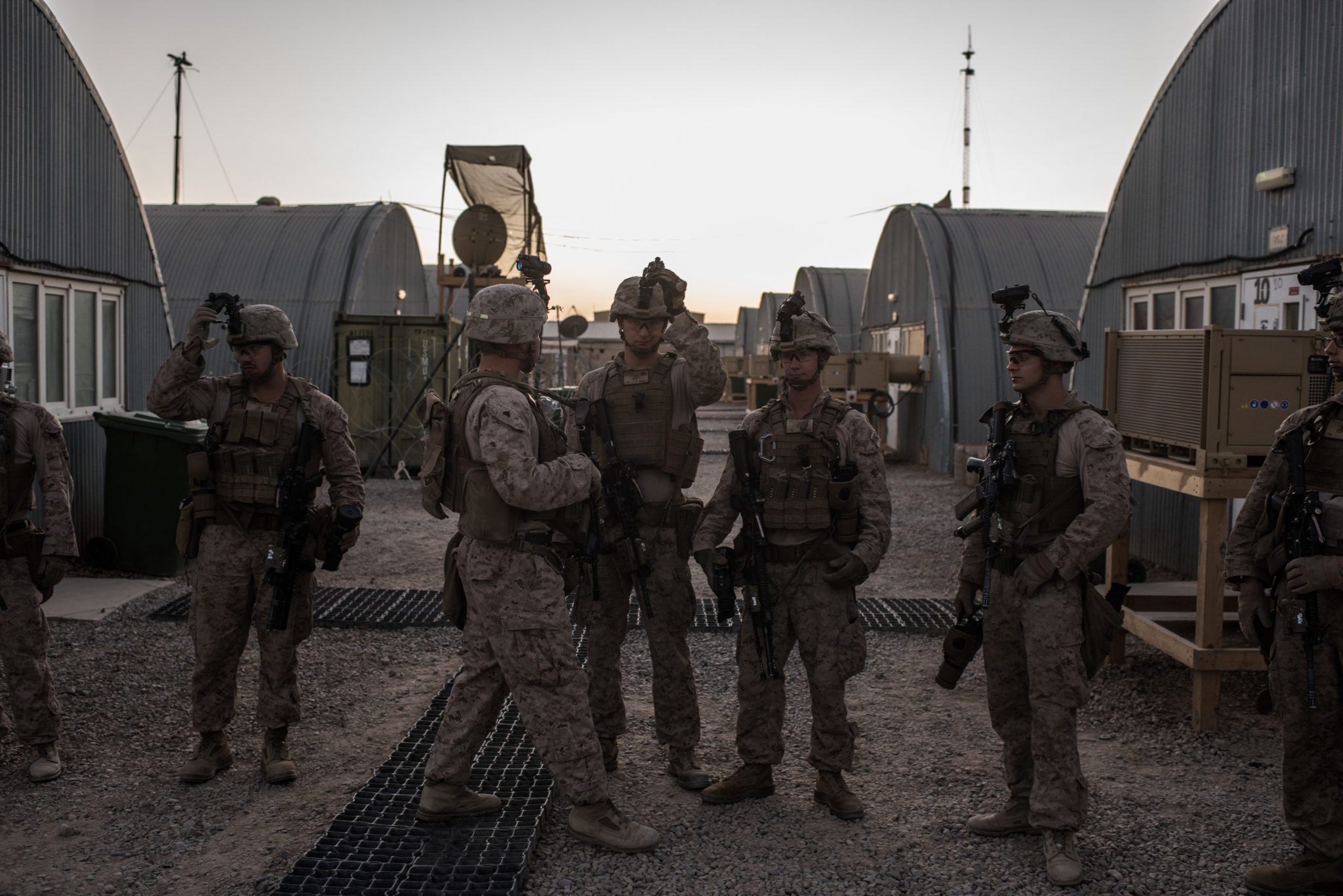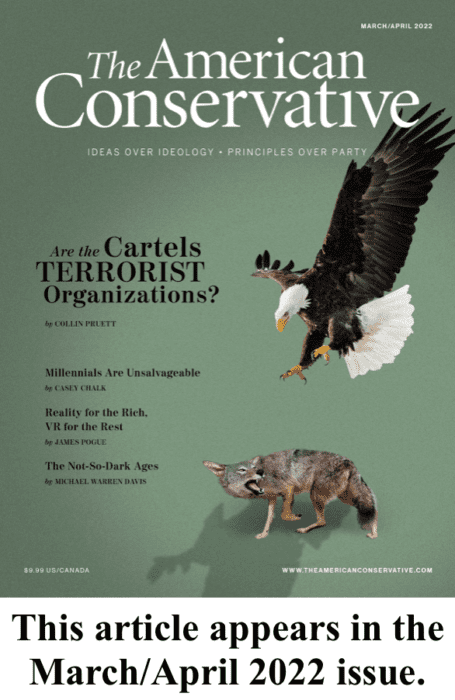Forever Warriors

Freaks of a Feather: A Marine Grunt’s Memoir, by Kacy Tellessen, (Latah Books: 2021), 268 pages.
Volunteers: Growing Up in the Forever War, by Jerad Alexander, (Algonquin Books: 2021), 320 pages.
Military memoirs are inevitably told by people who aren’t particularly representative of the population they are writing about. Kacy Tellessen, by his own admission, is not like other Marines. He is intellectual, well-read, inquisitive. He writes in Freaks of a Feather, “Our little book club was central to my identity, my way of separating myself from a world where everyone dressed the same and had the same crappy haircut.”
His comrade Huth, on the other hand, fits the stereotype more completely. “Huth had once confided in me that he had never read a book and that his ASVAB [Armed Services Vocational Aptitude Battery] score was barely good enough to get him into the Marines. But watching him move through the city, it became apparent that intelligence isn’t confined to standardized testing. Huth had something different, call it a natural predatory instinct or street smarts.”
Issued by a small regional publisher in Spokane, Washington, Freaks of a Feather is as much a tribute to Tellessen’s wife as it is a memoir of his time in the Marines, though the two themes are inherently linked. By the end, it seems as though Tellessen is writing the book in an effort to repay her for saving him from becoming a monster.
Jerad Alexander’s Volunteers takes a different approach to recalling his experience with the Marines in Iraq. The book will receive high praise for its literary quality, and deservedly so. He writes with ease about the adrenaline-filled battle scenes one expects of a military memoir:
The little demons on our shoulder whisper to us through the clatter of the machine gun and we bellow our love of death and battle, the chemicals running through us, the hell of this place and the culmination of our collective want, our desire, to be here, to see this, to stamp this inside us: this moment we see battle for the first time on the last day of summer. So go back to your classrooms and your shit jobs. Go pick up the mouth breathers from day care. Go back to your squabbles and bickering and petty tantrums. Go pick up your fast-food dinners and watch your reality TV. We’ll be here, doing this, doing this weird little savagery called war.
Tellessen and Alexander both grew up on the stories of disgruntled, disillusioned Marine veterans, and both dreamed of becoming disgruntled, disillusioned Marines themselves. Tellessen writes that “it was only when I picked up books about the Marines in Vietnam that I came to realize that they were just people, exceptional people, but flesh and blood people just like me. Or, at least people like who I wanted to become.” Their desire to become jaded old men did not take full account of the horrors it would take to become jaded. Both describe in their memoirs the change from eager young men to hardened Marines. Tellessen is sobered (in multiple senses of the word) by his experience, but Alexander goes further:
The tales of Vietnam were twisted into a gateway drug; they anchored me to the naïve perception that once I had come home from my own little war I could sit on a tree stump somewhere, hold a cane between my knees, thump my chest, and say, “I was there,” all without giving a passing thought to the battlefield horrors that might chew me up and spit me back out again, which is what many of the writers and artists of the Vietnam era were trying so hard to tell me.
Both books capture the inexplicable mystique that war carries in our imagination and the dangers that mystique presents to those sucked into its orbit. During my year-long stint as a military interpreter, I got a taste of that rush, and I admit that I miss it sometimes. While being quite different in disposition and approach, Tellessen and Alexander were both driven to join the Marine Corps by the desire to have “been there.” Tellessen writes:
Huth whistled cheerfully as he reassembled his rifle… I asked him why he was in such a jolly mood.
“Fucking Nam, man. I always wanted to be in the war in Viet-Fucking-Nam and I figure the palm groves is the closest I’ll ever get.”
I shook my head and called him an idiot, but I was having the exact same thought.
 “If I had my way, you’d stay home,” a friend warns Alexander after returning from a deployment as a contractor. “But I know you’ll go no matter what I say because there is nothing anyone can really say.”
“If I had my way, you’d stay home,” a friend warns Alexander after returning from a deployment as a contractor. “But I know you’ll go no matter what I say because there is nothing anyone can really say.”
Aspiring future Marines will no doubt stay up late reading Volunteers and Freaks of a Feather, then The Iliad and The Odyssey, and ignore the warnings that Tellessen and Alexander lay forth about the effects of war on those who fight them. The question isn’t whether there will be those willing to fight. The question is whether policymakers will read the other story of the Iraq War, the folly and hubris and miscalculation of those who led us to invade the country in the first place, and wonder whether it is necessary to send Marines like Tellessen and Alexander to fight another war, somewhere else, for equally unclear ends.
Sam Sweeney is a former congressional staffer and a writer and translator based in the Middle East. His writing has appeared in WSJ, National Review, Newsweek, Columbia Journalism Review, Catholic Herald, and elsewhere.
Comments